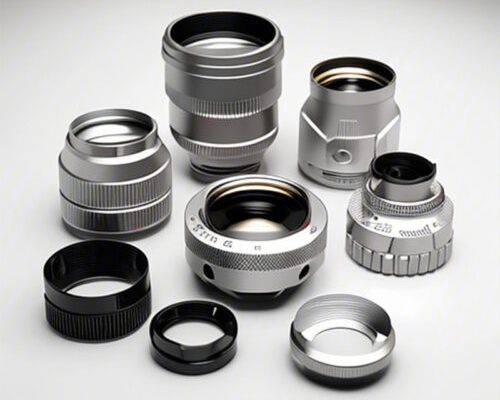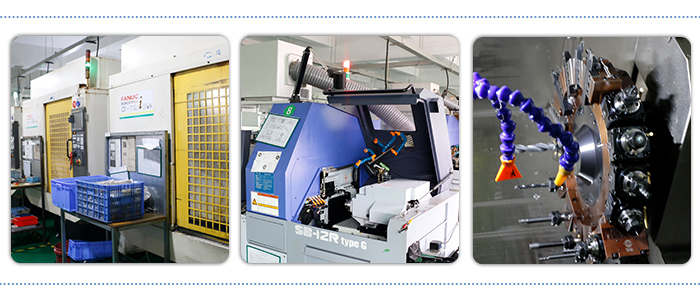When it comes to CNC machining, one question I often hear is, “What materials are the best for CNC turning?” As someone with years of experience in the field, I know how crucial it is to select the right material for your CNC machining projects. The material you choose can affect everything from machining speed to the final product’s quality, durability, and cost.
In this article, I’ll guide you through the different materials that are ideal for CNC turning, along with the factors you need to consider when selecting materials for your CNC machining needs. Whether you’re a seasoned professional or new to the world of CNC machining, this guide will help you make more informed decisions and avoid common pitfalls.
Understanding CNC Turning and Its Benefits
Before we dive into the best materials for CNC turning, let’s quickly review what CNC turning is and why it’s such a popular machining process.
CNC turning is a subtractive manufacturing process where a material is rotated while a cutting tool is applied to shape it. The process is highly precise and efficient, making it ideal for creating cylindrical or rounded parts. From prototypes to production runs, CNC turning offers exceptional accuracy and repeatability, which is why it’s widely used in industries like aerospace, automotive, medical devices, and more.
The process allows for tight tolerances and the ability to produce parts with complex geometries. However, to get the best results, it’s essential to choose the right material for the job.
Factors to Consider When Choosing Materials for CNC Turning
- Material Properties: Different materials have varying hardness, tensile strength, and machinability. You need to understand these properties to ensure your material is compatible with CNC turning.
- Cost: Your material choice will affect the overall cost of production. Some materials are more expensive than others, so it’s important to strike a balance between quality and cost-efficiency.
- Surface Finish: Some materials may be more prone to creating a rough finish, while others produce smoother results. If your part requires a high-quality finish, this is something to consider.
- Durability and Application: Think about the end use of your part. Does it need to withstand high temperatures, corrosion, or wear and tear? Your material choice will impact its longevity and performance in its intended application.
- Machining Time: Some materials are easier and faster to machine than others, while some may require more time, special tools, or additional processes.
Now, let’s take a look at some of the best materials for CNC turning, considering these key factors.
1. Aluminum: The Most Popular Material for CNC Turning
Aluminum is, by far, one of the most commonly used materials for CNC turning. It is lightweight, corrosion-resistant, and easy to machine, which makes it an ideal choice for a variety of applications.
Pros:
- Excellent machinability
- Corrosion-resistant
- Lightweight
- Good for prototyping and high-volume production runs
Common Applications: Aerospace components, automotive parts, electronics, and consumer products.
Tip: Aluminum alloys like 6061 and 7075 are particularly popular due to their good balance of strength, machinability, and corrosion resistance. If you’re looking for a material that offers versatility, aluminum is hard to beat.
2. Steel: Strong and Durable for Heavy-Duty Applications
Steel is another popular material used in CNC turning. It’s known for its strength, durability, and versatility. Steel alloys come in various grades, with each offering different levels of hardness and resistance to wear.
Pros:
- Very strong and durable
- High tensile strength
- Can withstand high temperatures
Common Applications: Automotive components, industrial machinery, tools, and structural parts.
Tip: For CNC turning, mild steel or carbon steel is often used. For higher strength, stainless steel (such as 304 or 316) is commonly chosen. Stainless steel also offers excellent corrosion resistance, making it ideal for harsh environments.
3. Brass: Easy to Machine with a High-Quality Finish
If you need a material that’s easy to machine and gives a polished surface finish, brass is a great option. It’s softer than steel and aluminum, which makes it easier to cut, and it also has excellent corrosion resistance.
Pros:
- Excellent machinability
- High-quality surface finish
- Corrosion-resistant
Common Applications: Plumbing fittings, electrical connectors, and decorative items.
Tip: While brass is relatively soft, it’s ideal for creating fine, detailed components and parts with intricate designs.
4. Titanium: High Strength for Demanding Applications
Titanium is an excellent material for CNC turning when strength and weight are important. While titanium is more challenging to machine due to its hardness, its superior strength-to-weight ratio makes it the preferred choice for certain demanding applications.
Pros:
- Extremely strong and lightweight
- Corrosion-resistant
- High-performance material for harsh environments
Common Applications: Aerospace, medical implants, and military applications.
Tip: Due to its toughness, titanium requires specialized tools and techniques for CNC turning. Be prepared for longer machining times and higher tooling costs.
5. Plastic: Cost-Effective and Versatile
When cost is a concern, or when you need non-metallic components, plastics such as nylon, acrylic, and delrin can be a great choice for CNC turning. Plastics are lightweight, inexpensive, and easy to machine, making them suitable for a wide range of products.
Pros:
- Cost-effective
- Lightweight and flexible
- Easy to machine
Common Applications: Consumer goods, medical devices, automotive components, and prototypes.
Tip: Choose the right type of plastic based on the part’s intended use. For example, Delrin is commonly used for gears and mechanical components due to its strength, while acrylic is perfect for transparent displays.
6. Copper: Ideal for Electrical and Heat Conduction
Copper is known for its excellent electrical and thermal conductivity. While it’s not as common as some other materials, it’s often used in applications where electrical or heat transfer is essential.
Pros:
- Excellent electrical and thermal conductivity
- Soft and easy to machine
- Corrosion-resistant
Common Applications: Electrical components, heat exchangers, and plumbing fittings.
Tip: Copper is an ideal choice for parts that require efficient electrical or heat transfer, such as heat sinks or connectors in electronic devices.
Conclusion: Choosing the Right Material for Your CNC Turning Project
Choosing the right material for your CNC turning project is essential to achieving the best results. It’s not just about what’s easiest to machine; it’s about balancing performance, durability, cost, and application needs.
Here’s a quick recap:
- Aluminum is great for lightweight, corrosion-resistant parts.
- Steel is perfect for strength and durability.
- Brass offers excellent machinability and surface finish.
- Titanium is ideal for high-performance, demanding applications.
- Plastic is cost-effective and versatile.
- Copper is the go-to for electrical and heat transfer.
When selecting a material, consider the specific demands of your project, including the required strength, machinability, surface finish, and cost. Don’t hesitate to consult with your CNC machining service provider (like YL Machining) to ensure you’re choosing the best material for your needs.
At the end of the day, the right material can make all the difference in the quality and success of your CNC turning project. So, what material are you planning to work with? I’d love to hear your thoughts!
In this article, I’ve shared some of the most popular and best materials for CNC turning, but your specific needs might require a deeper dive into material properties or machining techniques. Always feel free to reach out if you have more questions or need expert advice on your next CNC machining project!




